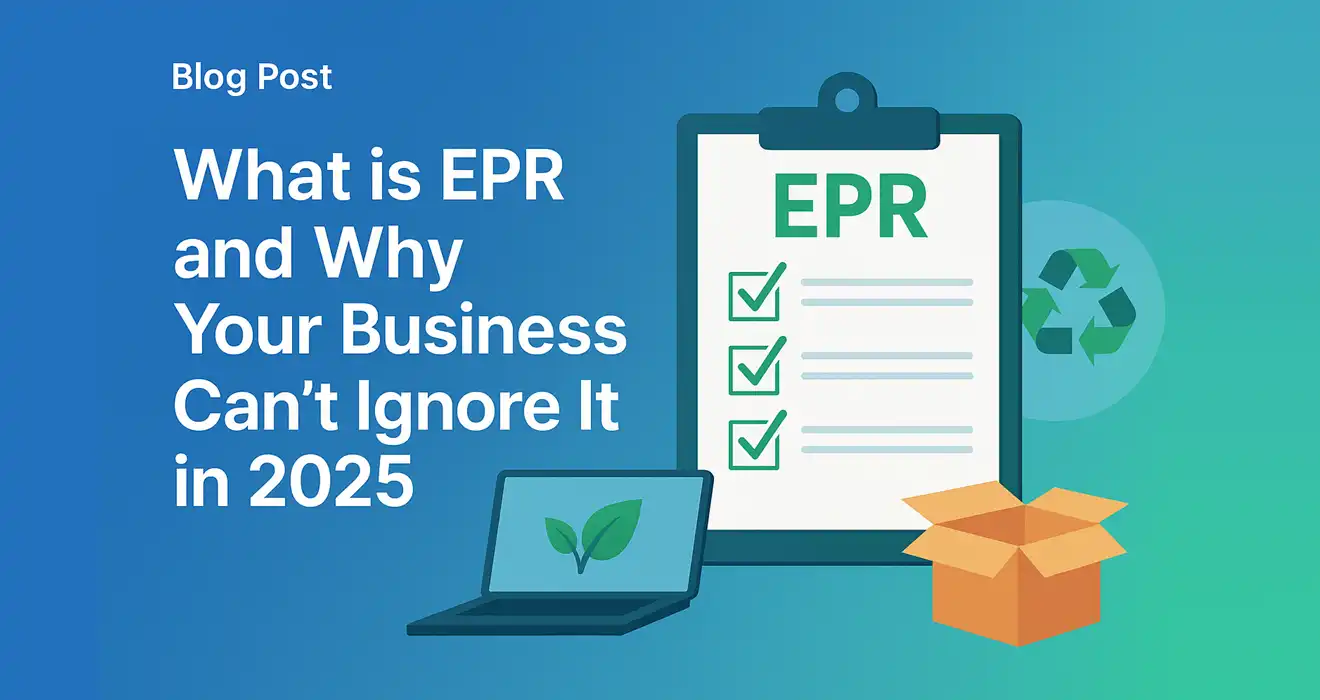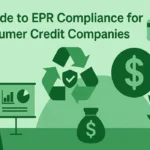In an age of increasing environmental awareness, governments around the world are holding businesses accountable for the waste they generate. India is no exception. With stricter environmental policies and sustainability goals, Extended Producer Responsibility (EPR) has become a legal and ethical mandate every product manufacturer, importer, and brand owner must understand—and act on.
If your business deals with electronics, plastic, tyres, batteries, oil, or hazardous products, ignoring EPR in 2025 is no longer an option. Here’s what you need to know.
What is EPR?
Extended Producer Responsibility (EPR) is an environmental policy approach where the responsibility of a product’s entire life cycle, including post-consumer waste management, lies with the producer. It means companies are legally obligated to ensure that the waste generated from their products is collected, recycled, and disposed of responsibly.
Originally introduced in India under the Plastic Waste Management Rules, 2016, EPR now applies to multiple waste streams including:
- E-waste
- Plastic waste
- Used tyres
- Used oil
- Batteries
- Hazardous waste
Why It Matters More Than Ever in 2025
1. Regulatory Compliance
The Central Pollution Control Board (CPCB) and State Pollution Control Boards (SPCBs) have made EPR registration and fulfillment mandatory. Non-compliance may lead to heavy penalties, legal action, and cancellation of licenses.
2. Brand Reputation
Consumers are actively seeking brands that are environmentally responsible. Failing to show sustainability action can hurt your credibility, especially in competitive B2B and B2C markets.
3. Environmental Impact
India generates over 3.5 million tonnes of plastic waste annually and is among the largest producers of e-waste. Your action as a business is crucial to reducing pollution, protecting ecosystems, and building a circular economy.
Who Needs to Comply with EPR?
- Producers: Companies that manufacture goods using plastic, metals, or hazardous materials
- Importers: Businesses that bring products or packaging into India
- Brand Owners: Including e-commerce companies, FMCG brands, and product aggregators
- Retailers: If selling products under their label or packaging
The TEN R Sustainability Advantage
At TEN R Sustainability LLP, we don’t just help you comply—we help you lead in sustainable responsibility. With a robust network of authorized recyclers and industry-specific expertise, we manage your entire EPR process from registration to certification.
Here’s How We Help:
- CPCB/SPCB registration
- Target-based waste collection via authorized partners
- Valid documentation & recycling certificates
- Yearly reporting and audit readiness
- Transparent and traceable process
Conclusion
EPR is not just a regulatory box to tick—it’s a step toward a cleaner, greener India. Whether you’re a manufacturer, importer, or brand owner, 2025 is the year to take EPR seriously. The risks of delay are real—but so are the opportunities for businesses that embrace sustainability today.
Need help navigating EPR?
Let TEN R Sustainability LLP take care of it for you. Contact Us
📍 TEN R SUSTAINABILITY LLP, ALT F 101, 2ND FLOOR, MR-01, NH-19, CRRI, OKHLA, NEW DELHI – 110044





